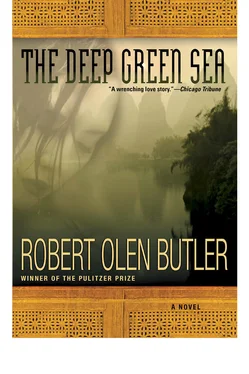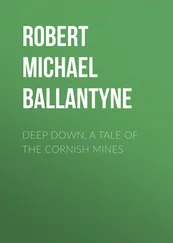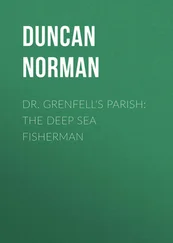“How did you decide it was time to stop your marriage?” I ask.
“After I got married, I worked in the steel mill for a while. My father wanted that very badly, me to be back at the mill. So I did that. I got married to Mattie and we rented a little brick house and I took the job my father wanted for me. And nothing felt right. Ever.”
“Did the crimes of the war bother you?”
He looks away and I suddenly hear myself. These are true things maybe, that I was taught, but I cannot hear my own voice when I speak them, and if I am sitting naked on a bed with a man and he can look down to see this part of me that is open now, then I want to speak only in my voice. I put my hands on his shoulders, just as he did when I was dizzy. I say, “I do not think you commit any crimes. That was not the way I mean to say it.”
He looks back at me and he smiles a little bit, but out of only one side of his mouth. I try to understand what that smile means. I say, “Whatever you did, it was your country that was the criminal.” I stop. I hear myself again. I say, “These words come out of my mouth. I do not know where they are from.”
He touches my cheek with his fingertips. “It’s okay,” he says.
“I do know where they are from. I have heard these things all of my life. You hear something all of your life and it makes you talk in a certain way. Even if you have just made love.” I turn my face and kiss his fingertips.

When Tien goes into a little riff about the propaganda-talk that’s coming out of her mouth, I touch her cheek and she kisses my fingertips and I know I’m loving her more in that moment because of her self-consciousness, and my being here suddenly feels like a thing that began a long time ago without my even knowing it, like this was all set up somehow, and it’s an odd feeling, I guess, especially for me to have, because I’ve never bought into all that, but I can’t shake it, this feeling. It’s like somebody’s arranged this, and I think of my mother.
It was summer and it was late in the afternoon and my father had just disappeared down the street with his lunch box, gone till midnight. I sat on the top step of our front porch and I’d just watched him, the slow roll of his shoulders in his walk, until I couldn’t see him anymore. Then there was a rustle behind me and my mother sat down at my side. “He’s gone,” I said.
She looked off in the direction of the mill and then she turned back to me and she said, “That’s okay. I have something for you, anyway.”
Suddenly there was a book in her lap. Something from the library that she’d waited till my father was gone to show me. And I can’t think of what book it was. I’m sorry, Mama, but I can’t think of any of the books, really, though I did read them for you and maybe I got some good from them. But she had a book and then she heard herself, how she’d just sounded. “I don’t mean it’s okay your father is gone. He likes books too.”
I didn’t say anything in answer to this. And my mama never wanted to tell me lies. She was very careful about that. So she had to keep talking till things were straight. She said, “He doesn’t like them, exactly. But he doesn’t have anything against them. He just doesn’t love them like you and I do. Like I don’t love all the things to do with the mill. You and he love that together. See how many wonderful things there are about you? There’s so much more to you than anybody.”
She went on like that, listening very carefully to every word she said, trying to correct this or that, down to the tiniest possible misimpression. She comes back to me like that, my mama, when Tien scrambles around trying to undo her words. And I don’t think I’m remembering my mother’s words from forty years ago. Not really. Not so exactly. But she comes into my head while Tien and me are sitting naked on the bed and we’ve just made love and Tien is going on in that suddenly familiar way. And I can hear my mother’s voice speaking those exact words that may not be exact at all. And she seems tangled up in all of this, somehow, maybe like she was pointing me toward the woman I would someday love.
But I say only, “You remind me of someone.”
“Who’s that?” Tien says.
“My mother, for a moment.”
“Is that good?”
“Yes. It’s very good.”
“It’s gone, though? That feeling is gone?”
“Yes.”
“Forgive me, but I’m glad. I like to be your lover better than a mother.”
I laugh and put my hand on the calf of her leg. “I do too. It was never anything like that.”
“Good.”
“And your mother?”
“You don’t remind me of her at all.”
“Good,” I say. “I like being your lover better than a mother.”
“I do too.”
I love Tien’s play, but I’m interested now in a real answer. I say, “Where is your mother?”
“She’s dead.” Tien says this instantly, looking me straight in the face.
I think of Tien’s shrine. “You don’t pray for her?”
“She’s not worth praying for.”

I say this lie to Ben without thinking. It is very easy and that scares me.
Then I speak a hard truth without thinking and maybe that scares me, too, because it is a true thing that I am not ready to say.
“I’m sorry,” he says.
So because I say one lie that I do not want to say, I tell him a truth I do not want to say either. “There is no reason to be sorry,” I say. “She was a prostitute.”
“After your father died?”
He is wanting to make excuses for her. He is asking things that make me want to lie some more. But I also feel I have to speak the truth to this man. I am sitting here naked for him. I have opened my body for him. I do not want all the lies. The lies my mother figured out for me. But to open my mouth and tell all the truth, all at once, seems a terrible thing. I have no strength for that. I try to shape the true words in my head and move them through my voice into this space between Ben and me and I feel suddenly like I am made of stone, like I have looked now at the woman with snakes for hair and all of my insides are turning to stone. But I do manage to say, “No. Before he died.”
I hear my voice and I sound very sad. And Ben, being gentle in his way, says no more. He lowers his eyes and murmurs some quiet thing, something full of sorrow and love for me. I love him even more now. Just in these few moments I love Ben more. It fills me with the urge to speak, to have only the full truth about this between us, but it also fills me with the fear of losing him. I say nothing for a while. He says nothing for a while.
Then he speaks. “I don’t know who were the criminals and who were the victims and even what the crime was, exactly. But I did see some very bad things when I was here. It’s funny. Those things bothered me for a few months when I first got home. But that faded away. It was very bad, but I was able to handle that. It wasn’t burning in me after those few months.”
“That is a good thing,” I say, trying to make up for my foolish words from before. “I am glad for that.”
“But something else took over. It was odd. It was another feeling and it didn’t burn hot but somehow burning dull made it even worse, and it never stopped. Never did. And it came from me being in the war. I knew that clearly. Because I was in the war, when I got home and faced the rest of my life, everything seemed flat, heavy. There wasn’t anything important around me. For a year, here in Vietnam, I woke up every day and I was scared and I could see people dying, or walking around and about to die, not even realizing what was next, though it was like it was all arranged somehow, because tomorrow’s death roster was going to be what it was going to be, and it could be me who was chosen, and I never lost a sense of that. And it made everything else. . I don’t know. Clear, I guess. Strong. I felt alive when I was here. Keyed up. Back in the States I didn’t even know what being alive felt like sometimes. I’d wake up in the morning and I’d look around at the furniture and out at a few trees in the yard and I’d look at the smoke from the mill in the sky and nothing felt like it was really there. I felt like nobody could kill me now but it didn’t mean a fucking thing.”
Читать дальше














